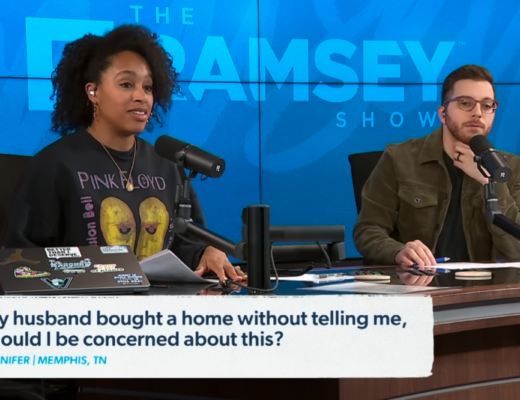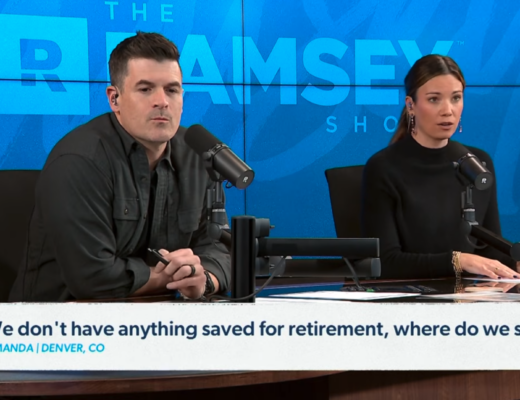Financial struggles often intertwine with personal challenges in ways that can create devastating cycles. Recently, I listened to a caller on The Ramsey Show whose story perfectly illustrates this difficult reality. His situation offers important lessons about the connection between mental health and financial stability—a topic rarely discussed openly but critically important.
The caller shared a heartbreaking situation: while experiencing a bipolar episode, he broke into his own car, fled from police, and spent 83 days in jail. During his incarceration, his vehicle (worth $41,000) was sold at auction for just $21,000, leaving him with a $20,945 balance. Now a debt collector is offering to settle for $8,300, later reduced to $5,200.
This story isn’t just about a repossession—it’s about how mental health crises can trigger financial disasters that compound existing problems.
Health Before Wealth: The Foundation of Financial Recovery
What struck me most about Dave Ramsey’s response was his immediate focus: “Before we worry about healing your numbers, we need to focus on healing you.” This wisdom cuts to the heart of sustainable financial recovery.
When facing both mental health and money challenges, we must prioritize correctly. No financial plan can succeed without addressing underlying health issues first. For those managing conditions like bipolar disorder, this means:
- Maintaining medication consistency
- Following treatment plans
- Building support systems
- Creating safeguards against financial mistakes during vulnerable periods
The caller mentioned he had just been discharged from the hospital and was back on his medication. This stabilization is the essential first step before tackling any financial problems.
Creating Financial Safeguards During Recovery
One practical suggestion from the conversation was to freeze credit reports with all bureaus. This simple step creates a crucial barrier against impulsive financial decisions during vulnerable periods.
For anyone managing mental health challenges alongside financial recovery, I recommend these additional safeguards:
- Appointing a trusted financial accountability partner
- Setting up automatic bill payments for essentials
- Creating spending limits on debit cards
- Establishing a simple, sustainable budget that works during both stable and challenging periods
These guardrails don’t restrict freedom—they protect progress during the inevitable ups and downs of recovery.
Dealing With Debt Collectors: Practical Next Steps
The caller’s immediate concern was handling the $20,945 debt. Dave’s advice was straightforward: settlement is the right approach, but timing matters. Since the caller expects a $5,700 settlement check in November, waiting makes sense.
Debt collectors typically accept 25 cents on the dollar for repossession deficits. The initial offer of $8,300 (later $5,200) aligns with this pattern. With patience and negotiation, the caller might settle for even less.
This approach isn’t about avoiding responsibility—it’s about resolving debt in a manageable way that supports recovery rather than undermining it.
The Predatory Nature of Auto Financing
There’s another troubling aspect to this story. The caller mentioned the dealership falsified his employment information, claiming he was a truck driver rather than an Uber driver, to approve a loan with $900 monthly payments he couldn’t afford.
This predatory practice targets vulnerable consumers, particularly those who might be experiencing mental health challenges. The dealership prioritized making a sale over ensuring the buyer could reasonably manage the payments.
Such experiences highlight why we need both stronger consumer protections and personal safeguards. No one should face financial ruin because they made a purchase during a vulnerable moment.
Finding Solid Ground
What I find most valuable in Dave’s advice is his emphasis on finding “solid ground.” Financial recovery isn’t just about numbers—it’s about creating stability that supports overall wellbeing.
For the caller, and anyone facing similar challenges, the path forward requires patience. First, focus on health stabilization. Then, secure steady income. Finally, systematically address debts through settlement or payment plans.
The road to financial recovery after a mental health crisis is rarely straight or simple. But with the right priorities and safeguards, it is absolutely possible to rebuild both health and finances.
I believe we need more open conversations about the intersection of mental health and money management. When we acknowledge these connections, we can develop better support systems and more compassionate approaches to financial recovery.
Frequently Asked Questions
Q: How should someone prioritize between mental health treatment and paying off debts?
Mental health treatment should always come first. Without stable health, financial progress will be temporary at best. Once treatment is established and working, then focus on building income and addressing debts systematically. Think of mental health as the foundation upon which financial recovery can be built.
Q: What’s the best approach for negotiating with debt collectors after a repossession?
For repossession deficits, collectors will often accept around 25% of the original balance. Wait until you have funds available before making an offer. Get any settlement agreement in writing before sending payment, and request written confirmation that the debt is satisfied in full. Never give collectors direct access to your bank account.
Q: How can family members help someone who struggles with both mental health and financial issues?
Support treatment compliance first, as medication and therapy provide the stability needed for financial progress. Then help create financial guardrails like credit freezes or accountability systems. Avoid enabling harmful financial behaviors, but also recognize that shame and judgment are counterproductive. Focus on forward progress rather than past mistakes.
Q: Are there legal protections against predatory auto lending practices?
Yes, but they vary by state and are often inadequately enforced. The Truth in Lending Act requires disclosure of loan terms, and some states have additional protections against fraudulent practices like falsifying loan applications. If you suspect predatory lending, contact your state’s attorney general office or consumer protection agency. Documentation of any misrepresentations or pressure tactics can strengthen your case.







